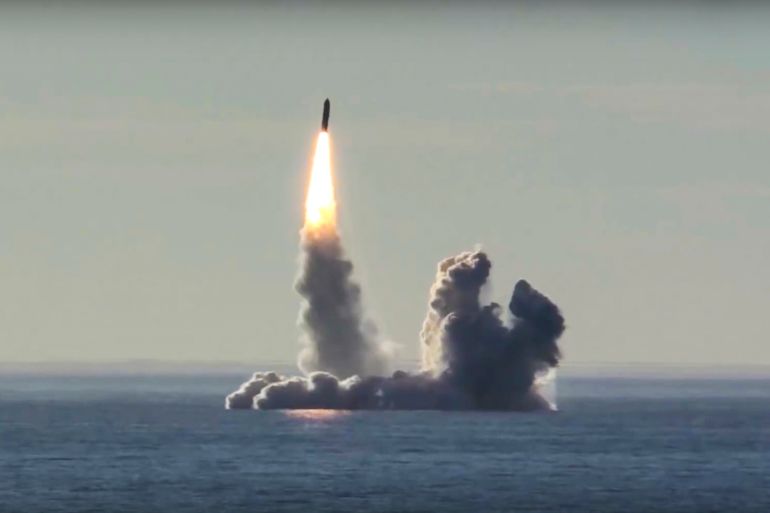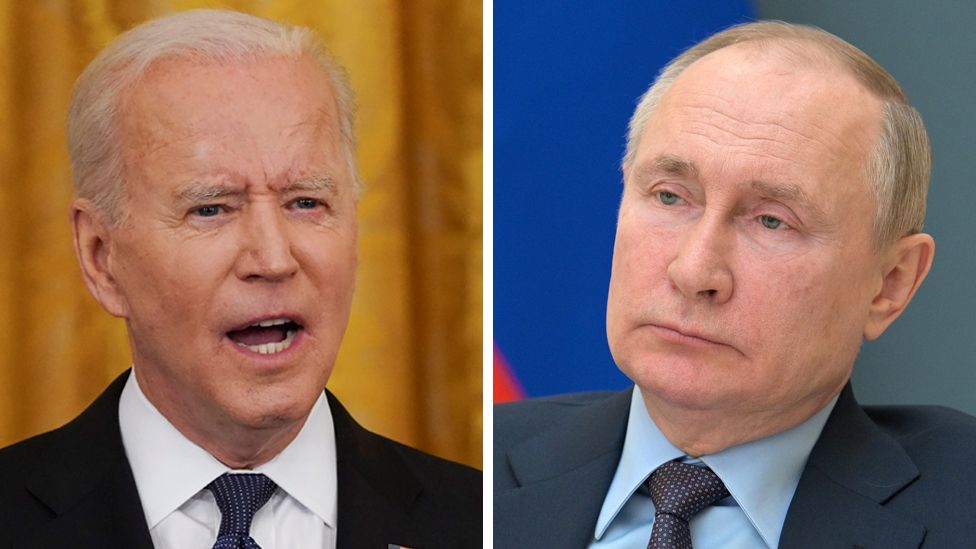Russia, in a turn of events, has approved a bill, revoking the Nuclear Peace Treaty, adjoining their on-going conflict against Ukraine. The lawmakers in Russia have passed a law which supports the country to pull out of the nuclear peace treaty. The move adds to the tension between Moscow and the West amid Russia’s war in Ukraine. The upper house Federation Council unanimously approved the bill to abandon the landmark agreement outlawing nuclear weapons tests on Wednesday. The lower house State Duma passed it in an accelerated vote last week. The legislation now only needs the signature of President Vladimir Putin to come into effect.
Russia asserts that it won’t resume testing unless the US does, but experts warn that such a test by either nation could trigger a new arms race, especially during the ongoing conflicts in Ukraine and the West Asia. Recent satellite images published by CNN show that Russia, the US, and China have expanded their nuclear test sites. Deputy Foreign Minister Sergei said that Russia is not prepared to restart nuclear talks with the US unless there is a change in the “deeply fundamental hostile course” of the US. Russia accuses the US of trying to weaken it strategically by arming Ukraine, while the US maintains it’s supporting Ukraine’s purported self-defence.
 ASSOCIATED PRESS (AP)
ASSOCIATED PRESS (AP)
What is The Comprehensive Nuclear-Test-Ban Treaty (CTBT) ?
The Conference on Disarmament profoundly abbreviated as CD began its substantive negotiations on a comprehensive nuclear-test-ban treaty in January 1994 within the framework of an Ad Hoc Committee established for that purpose. Although the CD had long been involved with the issue of a test-ban, only in 1982 did it establish a subsidiary body on the item. Disagreement over a mandate for that body blocked tangible progress for years.
After more than two years of intensive negotiations, the Chairman of the Ad Hoc Committee, Ambassador Jaap Ramaker of the Netherlands, presented a final draft treaty to the CD in June 1996. An overwhelming majority of Member States of the CD expressed their readiness to support the draft treaty. India, for its part, stated that it could not go along with a consensus on the draft text and its transmittal to the United Nations General Assembly. The main reasons for such a decision, as India pointed out, were related to its strong misgivings about the provision for the entry-into-force of the treaty, which it considered unprecedented in multilateral practice and running contrary to customary international law, and the failure of the treaty to include a commitment by the nuclear-weapon States to eliminate nuclear weapons within a time-bound framework.
As a result, Australia, on 22 August 1996, requested that the General Assembly resume the consideration of agenda item 65, entitled Comprehensive Nuclear Test-Ban Treaty as provided for in resolution of 12 December 1995. For that purpose, it also submitted the draft CTBT, identical to that negotiated in the CD, for adoption by the General Assembly. On 10 September, the General Assembly by resolution adopted the Comprehensive Nuclear Test-Ban Treaty and requested the Secretary-General of the United Nations, in his capacity as Depositary of the Treaty, to open it for signature at the earliest possible date. The Treaty was opened for signature in September 1996 and has been signed by 187 nations and ratified by 178. The treaty cannot formally enter into force until it is ratified by 44 specific nations, eight of which have yet to do so namely China, India, Pakistan, North Korea, Israel, Iran, Egypt, and the United States.
 CREDITS : STOCKHOLM INTERNATIONAL PEACE RESEARCH INSTITUTE (SIPRI).
CREDITS : STOCKHOLM INTERNATIONAL PEACE RESEARCH INSTITUTE (SIPRI).
Russia pulling out of the Peace Treaty : What it means for the world?
Kremlin announced their motives of pulling out of the treaty on October, 6th. Russians want to “mirror” the position of the United States, which has itself signed but never ratified the treaty. Putin said on October, 5: “I hear calls to start testing nuclear weapons. I am not ready to say whether we really need to conduct tests or not.”
The entire world comes under tremendous danger if Russia doesn’t stop going the way they are. The world still trembles hearing the Hiroshima & Nagasaki incident, let alone the thoughts of using another powerful atomic bomb.
The US stated earlier this month that it was ‘disturbed’ by Russia’s move to revoke ratification of the treaty. “A move like this by any state party needlessly endangers the global norm against nuclear explosive testing,” the US State Department said. Russia should not be “wielding arms control and irresponsible nuclear rhetoric in a failing attempt to coerce other states”, the State Department added, appearing to suggest that the move was aimed at pressuring the US and other countries who are supporting Ukraine in its fight against Russian forces. The lack of nuclear dialogue has cast doubt on the future of the New Strategic Arms Reduction Treaty , which limits the number of strategic warheads for both Russia and the US. Russia suspended the treaty this year, and it’s set to expire in 2026, leaving both countries without a bilateral nuclear weapons agreement.
 REUTERS
REUTERS
Since he invaded Ukraine last year, Putin has repeatedly reminded the West of Russia’s nuclear might, which could be about to come true. USA and UN’s failed leadership and poor negotiation qualities have now led the world into another nuclear threat. Wars on the middle-east front and in the European front have everybody on their toes.
They say a test by either Russia or the United States could prompt the other to do the same, and China, India and Pakistan might then follow, triggering a new global arms race. All are currently observing test moratoriums, and only North Korea has conducted a test involving a nuclear explosion this century.
Russia, Ukraine and the USA have good relationship with India. If at all a new Arms Race is to take place, what should be India’s position?
 Vyacheslav Volodin, speaker of Russia’s State Duma, attends a session in Moscow on Oct. 17, 2023. “We are protecting our country,” he said the next day as the chamber passed a bill to revoke Russia’s ratification of a nuclear test ban treaty. Reuters
Vyacheslav Volodin, speaker of Russia’s State Duma, attends a session in Moscow on Oct. 17, 2023. “We are protecting our country,” he said the next day as the chamber passed a bill to revoke Russia’s ratification of a nuclear test ban treaty. Reuters


 ASSOCIATED PRESS (AP)
ASSOCIATED PRESS (AP) CREDITS : STOCKHOLM INTERNATIONAL PEACE RESEARCH INSTITUTE (SIPRI).
CREDITS : STOCKHOLM INTERNATIONAL PEACE RESEARCH INSTITUTE (SIPRI).
 Vyacheslav Volodin, speaker of Russia’s State Duma, attends a session in Moscow on Oct. 17, 2023. “We are protecting our country,” he said the next day as the chamber passed a bill to revoke Russia’s ratification of a nuclear test ban treaty. Reuters
Vyacheslav Volodin, speaker of Russia’s State Duma, attends a session in Moscow on Oct. 17, 2023. “We are protecting our country,” he said the next day as the chamber passed a bill to revoke Russia’s ratification of a nuclear test ban treaty. Reuters










Comments 1